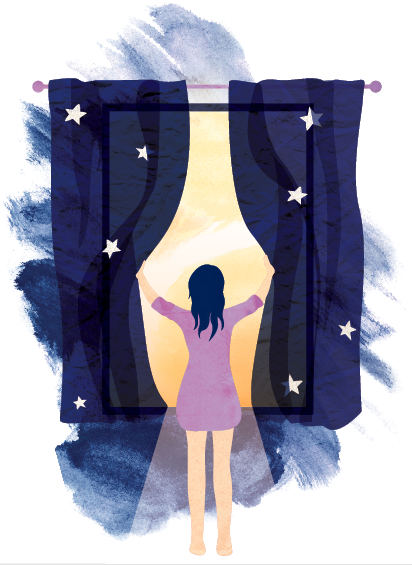With all the issues related to narcolepsy, it can be difficult to see a way forward in living a “normal” life. However, many people with narcolepsy manage to work, learn and have social lives. These are some considerations that you may want to think about going forward.
Work Life
People with narcolepsy would find it extremely difficult to maintain regular employment without adequate treatment. However, once managing their condition with medication and/or lifestyle changes, most can find ways to be happy and accomplished in their career.

Knowing when to “come out” as having narcolepsy can be difficult in work environments
This often depends on making smart choices.
- CAREER CHOICE: It is important for a person with narcolepsy to analyse what works for them in terms of a work environment. Obvious risk factors such as operating heavy machinery should be avoided, but also more personal evaluations have to be made. Some people with narcolepsy find it much easier to stay awake when staying active, while others find that too much activity causes increased fatigue.
- KNOW YOUR RIGHTS: Most countries have legal safeguards in place to protect those with disabling conditions in the work place and avoid discrimination. These laws commonly state that workplaces must cater to the needs of the employee within reason. Such measures could include being allowed to take short naps, having a more flexible work schedule or modifying your duties. Research the laws that apply in your country, as knowing what you are entitled to is half the battle.
Education
Education can be tough for people with narcolepsy due to the tendency for classes and lectures to take place in unstimulating environments that can have us falling asleep within minutes. Even the most engaged learners will be unable to stay focused or avoid sleep in these situations.
Most countries that have workplace protections for people with disability will also have similar laws in place regarding education. This means that schools and universities are obliged to help give their students with disabilities equal access to education.
SCHOOL: Students in primary or high school should have their parents in contact with the school to inform them of their child’s condition and the medications they are taking. It is also important to keep an open dialogue with the student to ensure that they are not facing any extra difficulties in the classroom such as negative attitudes from misinformed teachers.
UNIVERSITY: University students will have to take responsibility for their further education, talking to tutors or lecturers about ways to ensure the best possible outcomes. Many universities now have specialised disability services that can help you to get special accommodations for assignments or tests should you require them.
Health & Safety
While just like any other person in most respects, a person with narcolepsy does have a few extra things to take into consideration to remain safe, avoid injury and stay healthy.
DANGEROUS SITUATIONS can be much more dangerous for people with narcolepsy. Being around hot stoves, large flights of stairs or sharp implements can be risky for those who are feeling particularly tired, prone to cataplexy or experience automatic behaviour.
These things should be avoided entirely; accidents can be avoided by staying aware of your own state of alertness. Things like walking alone at night should also be avoided, as hearing footsteps behind you can be enough to trigger cataplexy in some people.
DRIVING is a big issue for many living with narcolepsy and, strangely, is one of the first questions many people ask people with narcolepsy about their condition. Specific laws regarding driving restrictions will change from place to place, but most countries do allow for those who are properly treated to continue driving.
If you are able to drive, you do still have to be very careful to monitor your levels of alertness. You should pull over even if you feel only slightly drowsy in order to avoid harm to yourself and/or others. Many people with narcolepsy limit themselves to certain periods or distances of driving just to be safe.
OBESITY is a problem that affects people with narcolepsy at significantly higher rates than the general public. There is a myriad of explaining factors here:
- narcolepsy causes tiredness that prevents activity
- the sleep-deprived brains of people with narcolepsy crave high-sugar foods for an instant energy boost (that ultimately doesn’t help)
- the hormone orexin that controls our sleep cycles (and is lacking in people with narcolepsy) also plays a role in our metabolism
It is especially important for people with narcolepsy to keep control of their diet and to exercise regularly, as not only do these practices result in improve symptoms, but they will prevent further conditions such as diabetes from developing.
